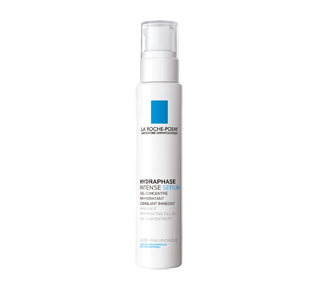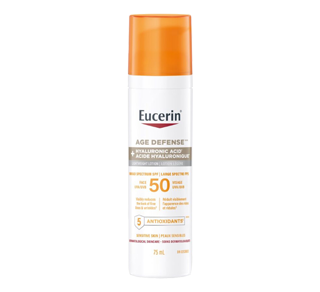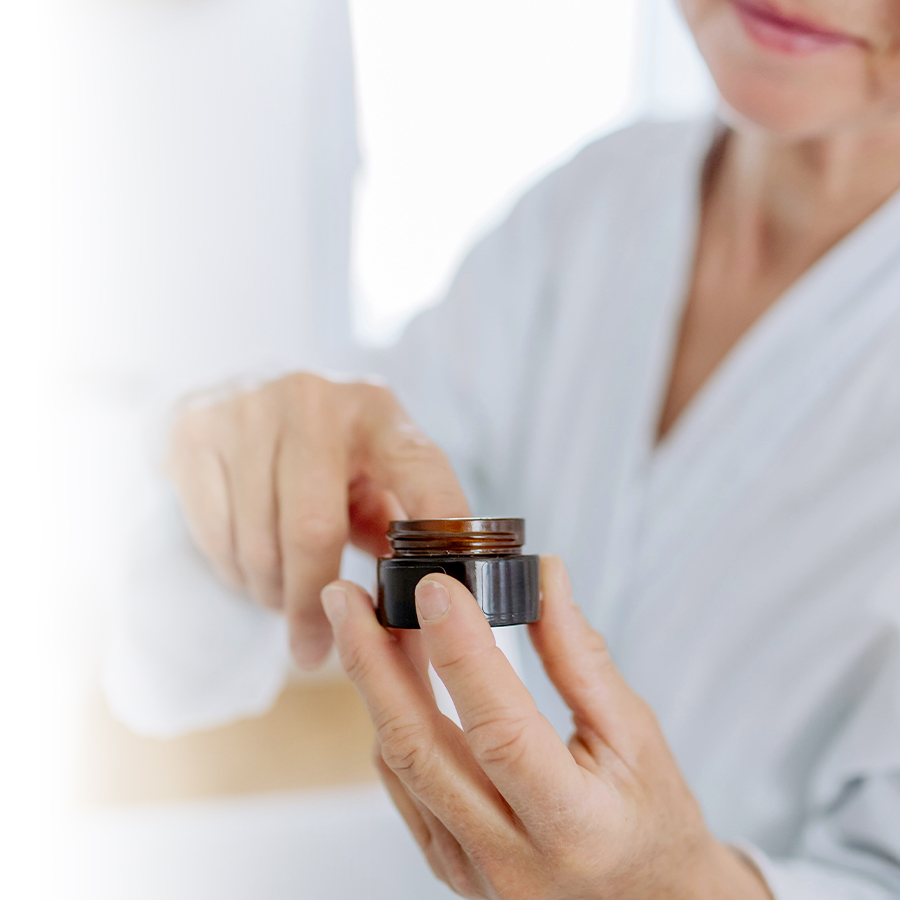How does menopause affect your skin?
The changes that occur during menopause and perimenopause affect your skin in a number of specific ways. First, production of DHEA, which is also known as the “youth hormone,” drops considerably. So do your levels of estrogen (a primary female hormone). The decrease in both of those hormones contributes to an accelerated aging of the skin by reducing the production of hyaluronic acid (a natural moisturizer), lipids/fatty acids (which give your skin its suppleness), elastin and collagen—two key proteins that affect your skin’s density and elasticity. In turn, those changes affect your skin in a number of ways:
- more fragile, weakened or dried out skin;
- a finer or rougher skin texture;
- loss of elasticity and radiance;
- increased number of wrinkles and brown spots;
- increased dryness and sensitivity;
- redness and itching.
A healthy lifestyle for your skin
Adopting a healthy lifestyle during menopause can help you maintain your well-being and health, while preserving the health and beauty of your skin.
Here are a few tips:
- stop smoking;
- drink plenty of water;
- eat a healthy, nutritious diet;
- take part in regular physical activity;
- get plenty of quality sleep;
- avoid tanning booths;
- daily use of a sunscreen with a solar protection factor (SPF) of at least 30, ideally one with a broad-spectrum filter that protects you against both UVA and UVB rays.
Having a proper skincare routine that’s adapted to your new needs is another good way to help slow the aging of your skin and maintain its good health during menopause.
Proper skincare during menopause.
It's important to care for your skin daily, no matter what your age. Here are a few tips to help you choose your products.
Cleansing and preparing your skin.
- Cleanse your skin morning and night with a gentle, pH-balanced product, then gently pat your skin dry with a clean towel.
- Use a milk-based makeup remover, which is less likely to damage the hydrolipidic film (the fine layer of oil and water that protects your skin).
Nourishing and moisturizing your skin.
- Choose deep moisturizing products, because as your skin ages, its ability to retain water is reduced. Moisturizers that contain hyaluronic acid are highly effective.
- Keep your skin supple and plump during menopause by nourishing it with products that are rich in fatty acids, like omega-3 and omega-6.
- Choose richly textured products that are made with highly nourishing ingredients like beeswax, and fortifying ingredients, like calcium, to prevent your skin from early thinning.
- Reinforce the effects of your skincare routine by applying a moisturizing mask once or twice weekly to help improve the elasticity, softness and radiance of your facial skin.
Fighting the signs of aging.
- Choose creams that firm, redensify and restructure your skin by stimulating collagen production and reducing the appearance of wrinkles. Check labels for active ingredients like vitamin C, vitamin E and hyaluronic acid.
- For a more intensive youth treatment during menopause, add an ultra-concentrated serum to boost the plumping effect of your other skincare products, while reducing redness and brown spots.
- Use products that target specific signs of aging depending on your needs (wrinkles, pigment spots, loss of firmness or radiance, etc.). Your choice of products should match your skin type, whether it’s sensitive, allergic, dry, normal, combination or oily.
- Use targeted skincare products for the areas around your eyes and mouth, where your skin is more delicate.
Protecting your skin from the sun.
- Use a moisture-preserving sunscreen every day. Look for formulas that are created specifically for more mature or sensitive skin.
Choose products that block UV rays and fight the free radicals they produce, two of the major factors that cause skin aging during menopause.
For hot flashes or night sweats, try refreshing, mattifying formulas that are specifically created to minimize the impact of these bothersome symptoms.



